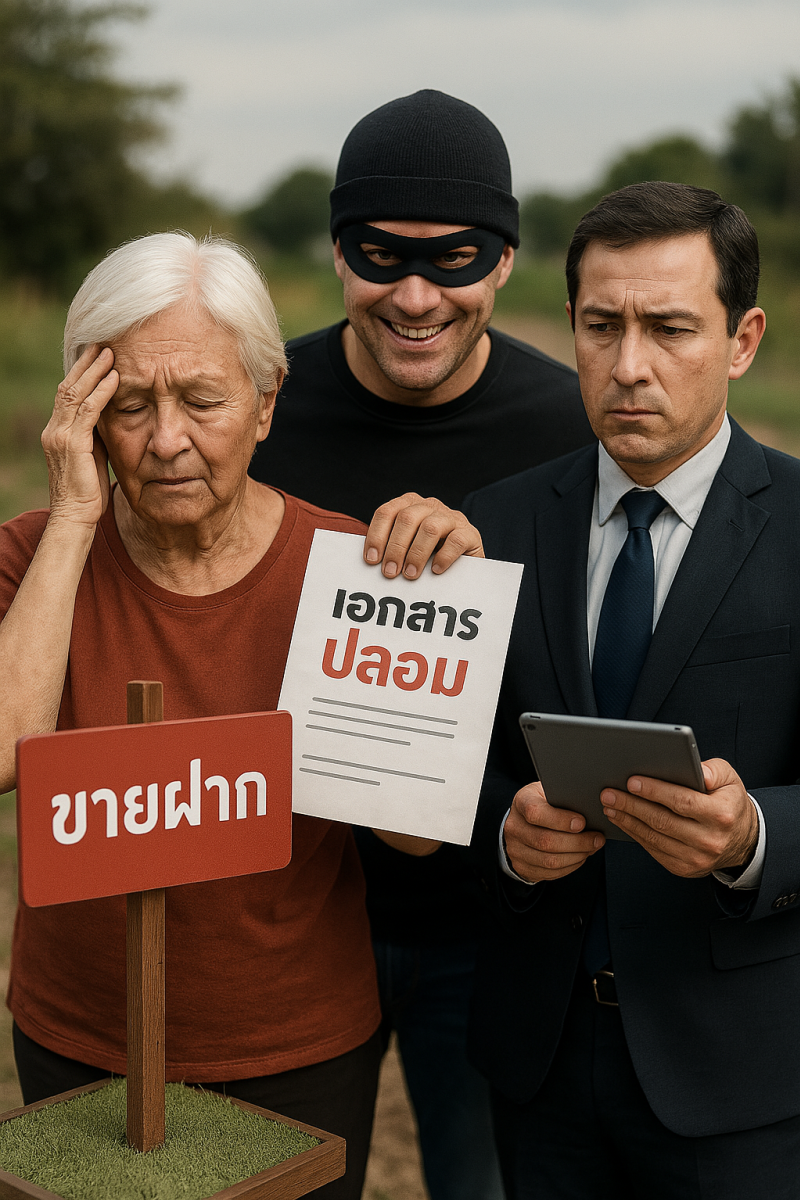WeChat ID :

Beyond the condo industry.
There’s another world just as riddled with scammers.
That is the "sell with right of redemption" industry.
(Known in Thai as “ขายฝาก”)
.
The process is quite similar to a mortgage.
The property owner uses their real estate
as collateral to borrow money.
.
Elderly property owners
are often targeted by these scammers.
They want to sell their land,
but are tricked into entering a sell-with-redemption agreement instead.
(You can read more details about how this works on various websites.)
.
Scammers create fake documents claiming the owner’s consent,
and circulate them around the market,
hoping other brokers will help find investors to buy the redemption rights.
.
Why do scammers do this?
Properties under this scheme are typically offered at 40–60% of market value.
Scammers test the market by circulating the deal.
If there’s enough investor interest…
.
1.1 They pressure the owner to sell at this low price.
1.2 They show screenshots of investor interest
and ask for “processing fees” or “deal-pushing fees”
to make it happen — all without the owner knowing what price was agreed upon with the investor.
.
In this particular case,
I got my hands on the documents.
And I noticed several red flags:
All signatures were written in the same handwriting.
There was no indication that this was a sell-with-redemption transaction.
The owner's signature was missing entirely.
.
So I called the owner.
He spoke with clear irritation,
assuming I was just another person trying to talk him into a sell-with-redemption deal.
I told him to calm down —
I wasn’t here to buy or push for that deal.
.
Instead, I had evidence
of who was manipulating his land into this shady transaction,
causing him unnecessary stress.
I asked whether he wanted the evidence
in order to pursue legal action.
.
But he said he didn’t want to sue just yet.
He’s still trying to stay calm.
#Well, up to you bro.
.
FYI — The law:
Anyone who fakes documents
is guilty of forgery,
punishable by up to 3 years imprisonment
or a fine of up to 60,000 baht, or both.
.
If the forged document
is an official title or government document —
such as a loan agreement, sales contract, or lease contract —
the penalty increases to
6 months to 5 years in prison
and a fine ranging from 10,000 to 100,000 baht.
.
Join the discussion at
https://www.facebook.com/Ex.MatchingProperty/posts/pfbid0FAFUPg4UAgS264euxJzWjCJBuYAS2pofW79USJCZ5KVFLsNEZNJBapk2muADTE5al